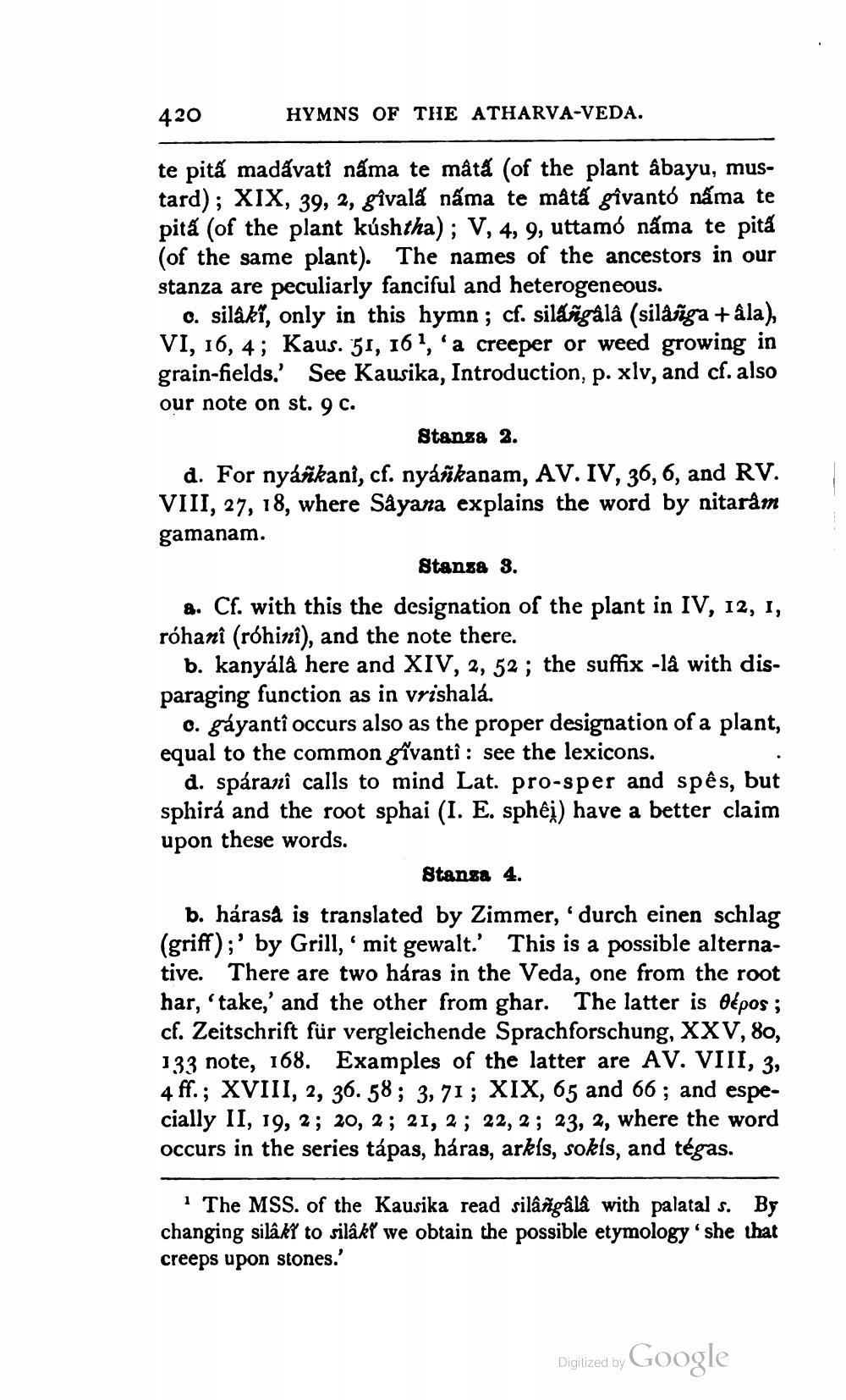________________
420
HYMNS OF THE ATHARVA-VEDA.
te pită madávati nama te mâtă (of the plant âbayu, mustard); XIX, 39, 2, givalá nấma te måtá gîvantó nấma te pitá (of the plant kúshtha); V, 4, 9, uttamó nấma te pitá (of the same plant). The names of the ancestors in our stanza are peculiarly fanciful and heterogeneous.
0. silaki, only in this hymn ; cf. siláñgâlâ (silasiga +ala), VI, 16, 4; Kaus. 51, 161, 'a creeper or weed growing in grain-fields.' See Kausika, Introduction, p. xlv, and cf. also our note on st. 9 c.
Stansa 2. d. For nyáñkani, cf. nyáñkanam, AV. IV, 36, 6, and RV. VIII, 27, 18, where Sayara explains the word by nitaram gamanam.
Stansa 3. a. Cf. with this the designation of the plant in IV, 12, 1, róhani (róhini), and the note there.
b. kanyálå here and XIV, 2, 52; the suffix -lå with disparaging function as in vrishala.
0. gáyantî occurs also as the proper designation of a plant, equal to the common givanti : see the lexicons.
d. spáranî calls to mind Lat. pro-sper and spês, but sphira and the root sphai (I. E. sphêj) have a better claim upon these words.
Stanga 4. b. hárasa is translated by Zimmer, 'durch einen schlag (griff);' by Grill,' mit gewalt.' This is a possible alternative. There are two háras in the Veda, one from the root har, 'take,' and the other from ghar. The latter is Oépos; cf. Zeitschrift für vergleichende Sprachforschung, XXV, 80, 133 note, 168. Examples of the latter are AV. VIII, 3, 4 ff. ; XVIII, 2, 36.58; 3,71; XIX, 65 and 66 ; and especially II, 19, 2; 20, 2; 21, 2; 22, 2; 23, 2, where the word occurs in the series tápas, háras, arkls, sokls, and tégas.
i The MSS. of the Kausika read silâñgala with palatal s. By changing silâkî to silâkî we obtain the possible etymology she that creeps upon stones.'
Digized by Google




